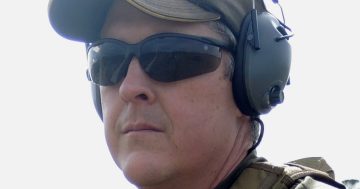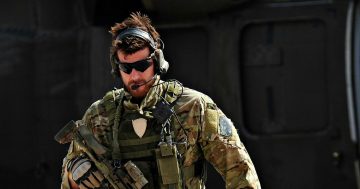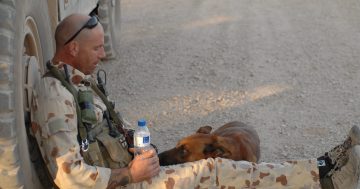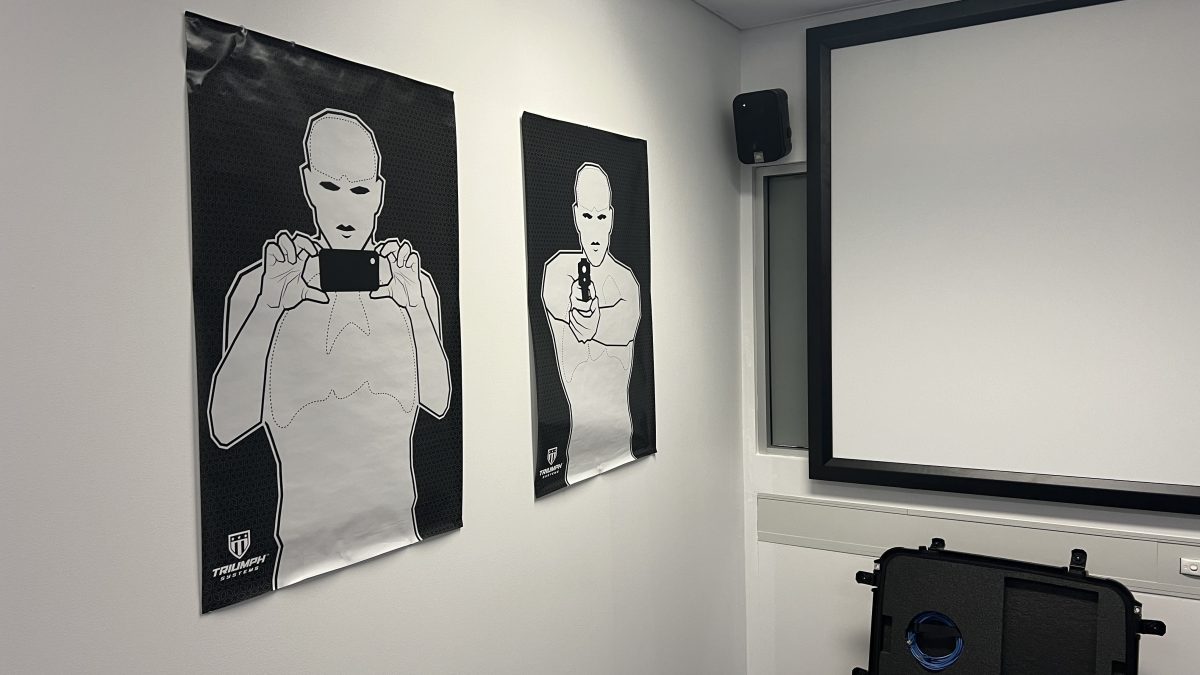
Dr Herbert said the act of ‘blooding’ is an atrocity that constitutes an “almost unfathomable puzzle” for the military ethics and Special Operations Forces community. Photo: James Day.
In November 2020, the Australian Defence Force (ADF) released the Brereton Report on war crimes allegedly committed by soldiers during the war in Afghanistan. While the atrocities bore a startling reflection of our military, many asked how this could have even happened.
Last month, an ADFA lecture theatre full of defence personnel, academics and diplomats convened to celebrate the launch of MERLIN, the Military Ethics Research Lab and Innovation Network founded by UNSW Canberra to answer the moral puzzles affecting soldiers, particularly those in Special Operations Forces (SOF).
Throughout the launch, various clips of military ethicists from around the world declaring their support for the potential of the initiative were shown. But the core spectacle of the evening was a keynote address from Dr Roger Herbert, a US Naval Academy Ethics Professor who served for 26 years as a Navy Seal and was involved in the 1989 US invasion of Panama.
Dr Herbert opened his speech with praise for Major General Brereton’s approach to the inquiry but said the report raised many questions that are “crying out for more scholarly attention”.
“Even if the allegations in the report turn out to be utter hoaxes, they suggest ethical puzzles that can be theoretically productive. Australian, British and US SOF are still very active and operating in an extremely morally complex terrain,” he said.
Central to Dr Herbert’s speech was a single paragraph from the report.
“The inquiry has found there is credible information that junior soldiers were required by the patrol commanders to shoot a prisoner in order to achieve the soldier’s first kill, in a practice that was known as blooding,” he said.
“Typically, the patrol commander will take the person under control and a junior member who would then be directed to kill the person under control.
“Throwdowns would be placed with the body and a cover story would be created for the purposes of operational reporting and to deflect scrutiny. This was reinforced with a code of silence.”
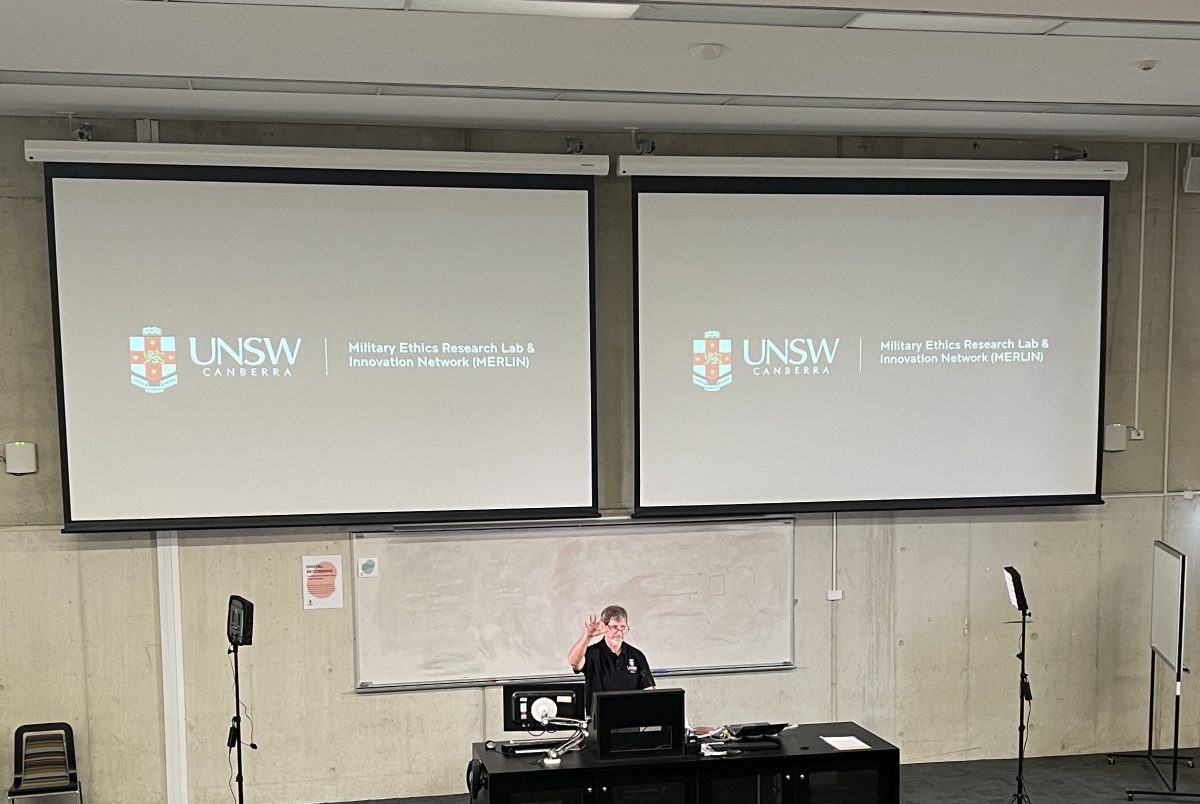
“I think I could get my brain around it if the alleged perpetrators were revolutionary or religious zealots,” said Dr. Herbert. “But Australians are not only among the most professional soldiers in the world, they’re also among the finest humans you’ll ever meet.” Photo: James Day.
While Dr Herbert conceded the presence of “bad apples”, he said more attention should be on systemic problems. On the SOF selection process concentrating or screening out sociopaths, Dr Herbert said from his experience as a Navy SEAL instructor, they wouldn’t survive the training.
“They are either discovered and pilloried in their peer reviews, or their inability to form cooperative bonds makes the training unbearable. But again, I think that these are testable hypotheses,” he said.
One explanation prompted by the report is the elitist culture of special operations formations, described as “the dominance of a clique of non-commissioned officers who embraced a warrior hero culture”.
Dr Herbert admits that elitism can lead to unhealthy outcomes in any endeavour but is sceptical of the path from privilege to homicide and the risk of punishing the unconventional thinking that makes special operations possible.
Dr Herbert believes one key systemic explanation is the impact of ‘moral injury’. His two colleagues Dr Ned Dobos and Associate Professor Deane-Peter Baker have defined it as when a soldier perpetrates or witnesses an act that violates deeply held moral beliefs, such that they are likely to feel moral pain in the form of guilt, shame, anger and betrayal.
Moral injury can permanently warp the soldier’s capacity to experience empathy for the suffering of others, distinguish right from wrong or feel remorse for genuinely wrongful acts.
“It has afflicted soldiers since the antiquity, yet our understanding of its causes, our capacity to recognise its symptoms in our grasp of preventative measures are all in their theoretical infancy,” he said.
“We can’t keep treating moral injury like psychological trauma as we’ve been doing. That makes as much sense as treating a broken arm with psychotherapy.
“So, what would moral therapy look like? I predict that if we ever find an effective moral therapy, it’s going to be the result of a radically multidisciplinary interagency and international effort, and it’s one worth pursuing.”
Original Article published by James Day on Riotact.


